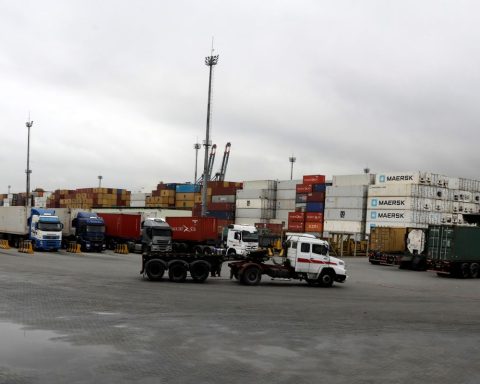The exchange of information and the alert issued by the National Intelligence Secretariat (SNI) allowed Brazil and Uruguay to prevent the entry of a plane with a crew of Iranians suspected of belonging to terrorist organizations.
The alert issued from Paraguay led Uruguay to close its airspace for the aircraft to enter, said the Uruguayan Interior Minister, Luis Heber, during a visit to the country.
Brazil also prevented access to its airspace, based on information sent by the SNI to the Brazilian Intelligence Agency (ABIN), according to the digital media Metrópoles.
From the communication to an ABIN representative in Asunción, the Brazilian Air Force was alerted to prevent access.
The plane finally landed in Argentina on June 8, where it has been held since then while the possible link between the crew members and money laundering and terrorist financing is being investigated.
The Argentine Security Minister, Aníbal Fernández, thanked the Paraguayan authorities for exchanging information on the activities of the plane prior to its landing in Buenos Aires.
Iranian-Venezuelan plane
The plane of the Emtrasur company is part of the Mahan Air company of Iran. Both the airline and the Iranian citizens who are part of the crew are linked to the trafficking of weapons and equipment for the Quds Forces, a body of the Iranian Armed Forces that supports militias such as Hezbollah and Hamas.
According to the Paraguayan government, the crew is made up of 5 Iranians and 14 Venezuelan citizens. The plane landed at the Guarani Airport in Ciudad del Este on May 13 and left 3 days later.
Based on the information received by intelligence agencies from the United States and Israel, the alert was issued to the countries of the region, which led Uruguay and Brazil to close their air borders and Argentina to initiate an investigation for alleged financing of terrorism.
The President of the Republic, Mario Abdo Benítez, highlighted the work of the Intelligence Secretariat to determine the dangerousness of the crew members and the suspicions about their activities.
The Iranian government expressed its rejection of what it considered an “anti-Iranian” act promoted by the United States and Israel. For its part, the Paraguayan government ratified its position of safeguarding the security of the State and its willingness to maintain bilateral relations with Iran.

















